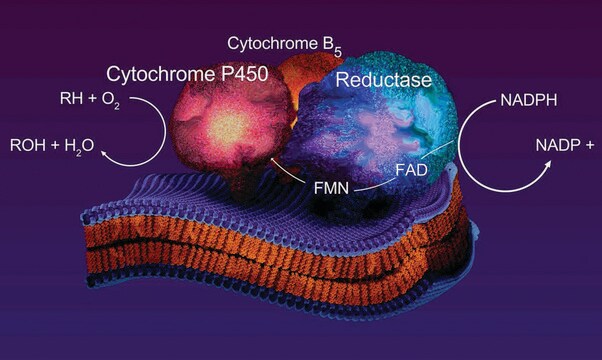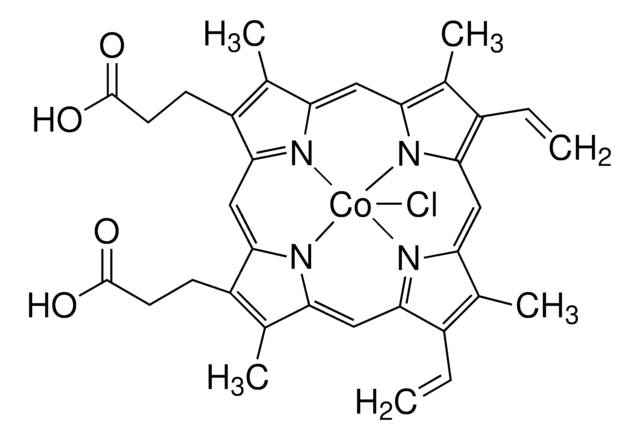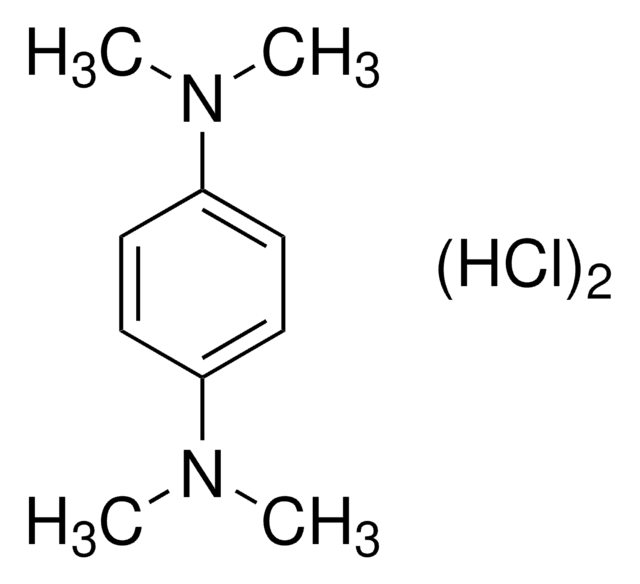C5499
Cytochrome c Oxidase from bovine heart
5 mg protein/mL
Synonym(s):
EC 1.9.3.1, Ferrocytochrome-c:oxygen oxidoreductase, Complex IV
About This Item
Recommended Products
biological source
bovine heart
Quality Level
form
buffered aqueous solution
specific activity
≥20 units/mg protein
mol wt
300-350 kDa by gel filtration
greener alternative product characteristics
Waste Prevention
Design for Energy Efficiency
Learn more about the Principles of Green Chemistry.
sustainability
Greener Alternative Product
concentration
5 mg protein/mL
greener alternative category
, Enabling
shipped in
dry ice
storage temp.
−20°C
General description
Cytochrome c oxidase contains 13 subunits, encoded by mitochondrial genes and nuclear genome. It is comprised of two heme groups (Fea and Fea3) and two copper centers, CuA and CuB.
We are committed to bringing you Greener Alternative Products, which adhere to one or more of The 12 Principles of Greener Chemistry. This product has been enhanced for energy efficiency and waste prevention when used in biofuel cell research. For more information see the article in biofiles.
Application
- to study the effect of oxidized glutathione (GSSG) on the number of total free cysteines
- in a histochemical assay to measure CcO activity in tissue sections
- to study the redox reactions of cytochrome c in isolated mitochondria exposed to blue or red lasers using resonance Raman spectroscopy
Biochem/physiol Actions
Unit Definition
Physical form
Storage Class Code
12 - Non Combustible Liquids
WGK
WGK 3
Flash Point(F)
Not applicable
Flash Point(C)
Not applicable
Choose from one of the most recent versions:
Certificates of Analysis (COA)
Don't see the Right Version?
If you require a particular version, you can look up a specific certificate by the Lot or Batch number.
Already Own This Product?
Find documentation for the products that you have recently purchased in the Document Library.
Customers Also Viewed
Our team of scientists has experience in all areas of research including Life Science, Material Science, Chemical Synthesis, Chromatography, Analytical and many others.
Contact Technical Service






